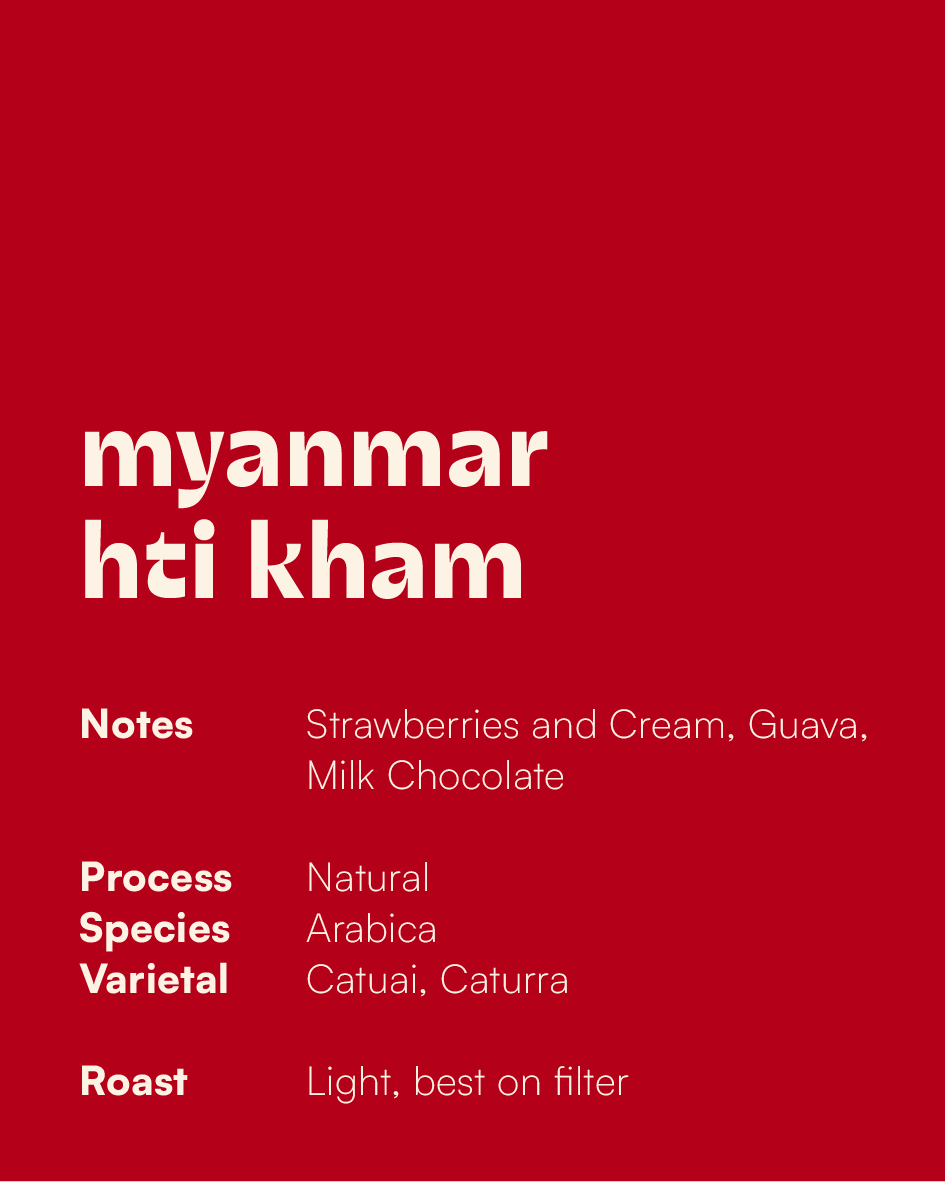What's exciting about this coffee
Getting this coffee to your cup wasn't easy. Sourcing from Myanmar comes with unique logistical challenges following the 2021 military coup. Checkpoints, border bottlenecks, and labour shortages are commonplace and have caused numerous delays.
But what makes this coffee exciting is its story of resilience, backed by Pink Headed Duck's commitment to working with producers at origin. It's also a reflection of Myanmar's booming domestic coffee scene; new roasters, cafes, and competitions are popping up across the country. This is something that's still rare to see in coffee-producing origins. We're watching a coffee culture develop in real time, and supporting coffees like Hti Kham means being part of that story.
















